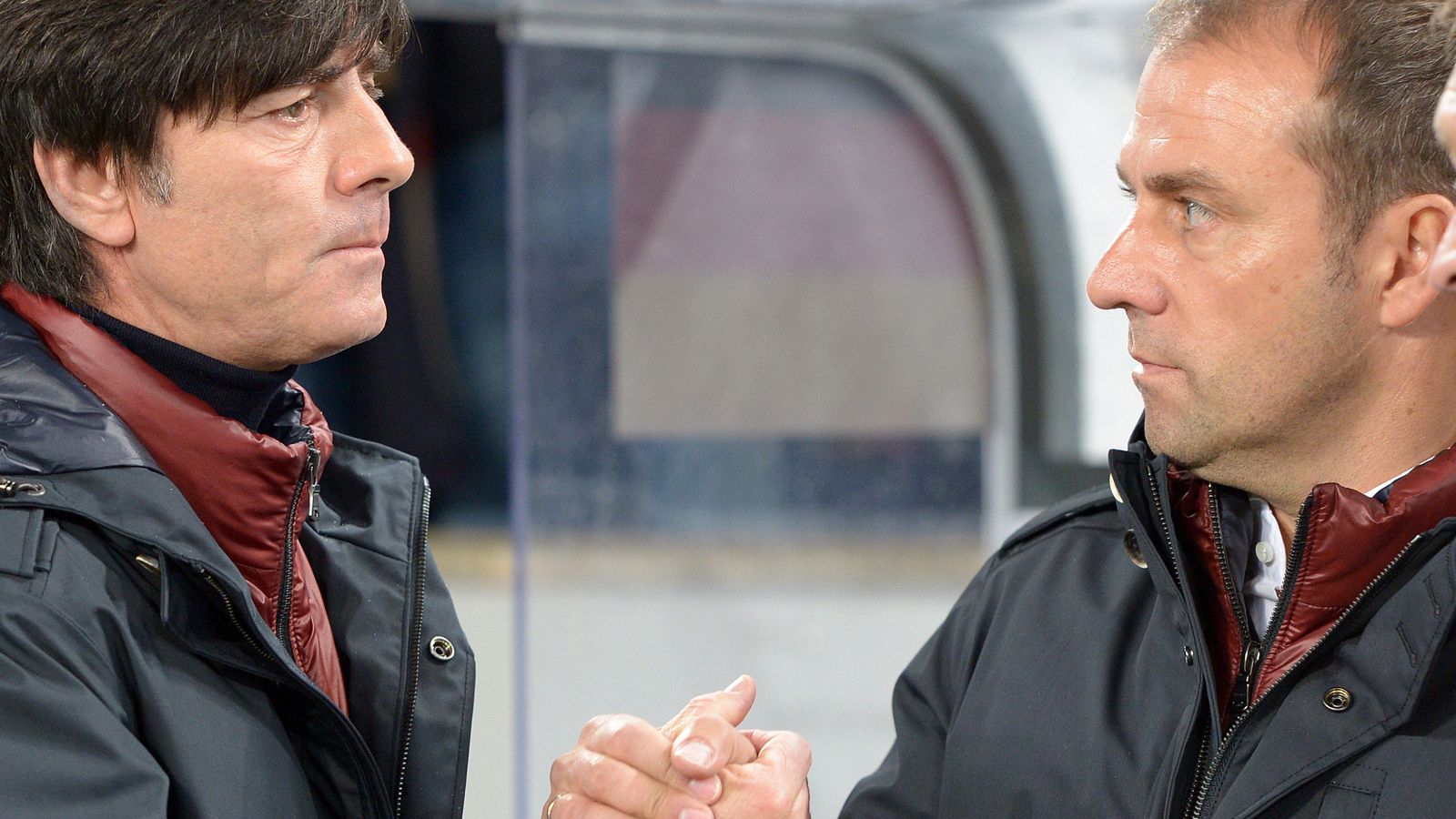From Löw to Flick: the change in the national team in 2021
The end of the Löw era and the beginning of his successor Hansi Flick couldn’t be more contrasting. The end of the World Cup after the preliminary round at the World Cup in Russia 2018 and the elimination in the round of 16 of the 2021 European Championship against England meant the low points in German football. The splendor of the 2014 world champion in Brazil was finally gone.
Löw farewell after national coaching record with 198 games
Fittingly, the farewell to the coach, who had shaped German football for so long, was not very much like a world champion. Wolfsburg, temperatures around freezing point – the farewell as a preliminary program for a sportingly meaningless World Cup qualifying game against the football dwarf Liechtenstein.
After all, Löw was able to hear loud “Jogi-Jogi calls” from numerous fans there again. But after 15 years, the record number of 198 games and a world championship title, the national coach finally had to hang his coat on the hook.
FCB title collector Hansi Flick brings the “all-in mentality” into play
His successor Hansi Flick had cleared all club soccer trophies at Bayern Munich. This unconditional will to win was the new goal for the national team when he was introduced as national coach in August.
“You all know that from poker: I bet ‘All-in'”. That means “that you give everything in order to leave the field as a winner in the end”. And that’s exactly what he did. Seven games, seven wins: no national coach had started as well as Flick during his tenure. The reward was the short-term qualification for the World Cup.
With the Bayern block back to old strength
Flick bet on the back four, Joshua Kimmich was allowed to conduct again in midfield and under his direction Leroy Sané suddenly unfolded his potential again. Thomas Müller also belonged again as a matter of course to the huge Bayern block in the national team.
Thomas Müller talks about “the joy in faces”
Suddenly the team showed again the rays known from earlier times. “What you can definitely take with you is this joy that could be seen on the faces here – both with us players and with the spectators”, Müller said positively after the 9-0 victory over Liechtenstein.
The big chunks follow after the soccer gnomes
Sure, the opponents have been masters of their field so far: Liechtenstein, Armenia, North Macedonia, Iceland and Romania. At the start of the World Cup year, the DFB team will meet Israel on March 26, 2022. In the Nations League in June and September, the opponents are then: Italy, England and Hungary. Germany has already played against each of these teams in a World Cup final.
And for the group draw on April 1, 2022 for the title fights in Qatar, it is certain that Germany WILL have to deal with at least one top opponent. According to the current world ranking, the DFB team would not be included in the pot of the best teams. On the list, the team slipped from Flick to twelfth place.
Flick promises “improvement against stronger opponents”
It is clear to the current national coach that it will all be “a challenge”. But Flick is sure that his team doesn’t “need to hide” even against top-class players, but instead “can improve against stronger opponents” instead.
World Cup wish: move into the final and “become world champion”
For the next high point of the year with the World Cup in November and December, Flick will “not guarantee any guarantees”. But he still has one resolution: “We want to get to the final. And we want to become world champions”. Which would close the circle to world champion Joachim Löw again.




